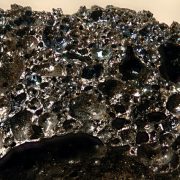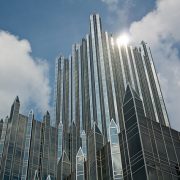GE Lighting Glass Plant To Close
Incandescent glass bulbs may be revived
Further, federal regulations have recently raised energy efficiency standards for light bulbs. In many cases, traditional glass incandescent bulbs don’t meet efficiency requirements. According to the company, revenues from incandescent lighting products have declined steadily in the past several years, as consumers switch to more efficient LED lighting products.
Keeping the Bridgeville plant open would require a major upgrade to the facility, which the company is not prepared to commit to. In addition, about three-fourths of the Bridgeville workers are eligible to retire. The plant currently operates at about 20% of its total production capacity. It was originally opened in 1907 and was purchased by General Electric in 1918. The company closed the plant for three years during the Great Depression, but resumed continuous production at the facility in 1938.
If you’re thinking that this signs the death certificate for traditional glass light bulbs, hold that thought. Earlier this year, researchers at MIT announced that they had developed a new fabrication technique for traditional glass bulbs that made them about three times more efficient than LED bulbs.
Traditional incandescents are about 5% efficient. In other words, about 95% of the energy they consume is lost as heat. LED bulbs are about 14% efficient. The experimental bulb created by MIT could be as much as 40% efficient, a whopping improvement. By encasing the filament in a special crystallized coating, they can reflect the energy that would typically be lost as heat back into the filament. This allows the bulb to draw less energy by “recycling” waste energy.
One common complaint about LED lights is that they don’t look “natural.” The MIT bulb produces a broad spectrum of light and can be used to create a variety of color temperatures.
The light’s color emissions may allow researchers to address concerns that LED lights are “too blue” and disrupt the body’s natural circadian rhythms. New research shows that exposure to blue light, especially from device screens and LED lights at night, can wreak havoc with the body’s clock. This causes sleep disruptions and other unintended health consequences.
The availability of natural light is key to creating a healthy work and living environment. Glass coatings like Glassprimer™ glass paint can help create interior environments that transmit natural light while still offering privacy. Glassprimer™ glass paint is formulated to bond permanently to glass surfaces, and will not chip, fade or peel, even when exposed to direct sunlight.
If you’d like more information about Glassprimer™ glass paint, please visit the rest of our site. If you’d like to purchase Glassprimer™ glass paint, please visit our online store .
.
Photo Credit: Gang Chen, MIT



